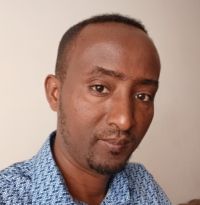Mohammed Yimam Endris
Ethiopia, Ph.D Candidate, Assistant Professor, Department of Political Science and International Studies, Bahir Dar University, Bahir Dar, Ethiopia 2023
The Transformations, Challenges and Resilience of Conflict Resolution: The case of Abegar in North Eastern Ethiopia

Project Summary
Indigenous conflict resolution mechanisms have been used by people in various places for centuries, even before the emergence of the state. Conflict resolution mechanisms have been classified into formal and informal mechanisms since the consolidation of the state. Formal mechanisms use written laws and state coercive mechanisms like the court, police, prison, and military, while informal mechanisms rely on the consent and support of the community without using written laws or coercive enforcement mechanisms. Indigenous conflict resolution mechanisms have qualities such as inclusivity, participation, deliberation, cost-effectiveness, and non-violence, making them invaluable sources of peace and social cohesion at the grassroots level.
In the north-eastern part of Ethiopia, specifically in Wollo, people have been using indigenous mechanisms such as Abegar to resolve conflicts for centuries. Abegar is a common conflict resolution mechanism in the eastern parts of North and South Wollo, but it has faced challenges over time and is still resilient. The current developments in Abegar call for scholarly research to explore its resilience and transformations, as well as its contribution to peaceful coexistence and ways of preserving it. This research project will focus on the procedures and function of the Abegar court by collecting data from beneficiaries and leaders of the Abegar customary system. It will also examine the new roles of Abegar in changing situations, the challenges it faces, and how it copes with those challenges to ensure its survival/ continuity.
Bio
Mohammed Yimam is pursuing his Ph.D. in Political Science and International Studies at Bahir Dar University. His research interests focus on interfaith relations for suitable peace, the role of indigenous mechanisms for peacemaking and social cohesion, Development and peace, social movements, and political changes. Throughout his career, since 2006, he has taught a variety of courses related to conflict resolution, peace-building, public policy formulation, governance and leadership, human rights, democracy and democratization, critical thinking, Civics and Ethical Studies. In addition, he has engaged in numerous community outreach projects, including beautification campaigns, peace-building and conflict resolution training, conference organization, and committee involvement.
One of his most recent notable achievements was his involvement in the European Union Enabling University Peace Education Project (EUPE), where he helped develop a peace education training module for youth in peace building. Additionally, he has conducted training on conflict resolution, peace and peace-building for the Amhara Youth Association and moderated elite dialogues in Dessie, Amhara Regional State.
Mohammed served as vice dean of the faculty of social sciences at Bahir Dar University and director of the ethics and anti-corruption directorate of the university. He conducted need assessment research for the Women’s Political Empowerment Training Program under the auspices of UN Women, the Amhara Regional State Women and Youth Affairs Bureau, and Bahir Dar University. Moreover, he developed a training curriculum for Women Political Empowerment Training Program that involved course selection, content development, preparation of a facilitator guide for the training process.
